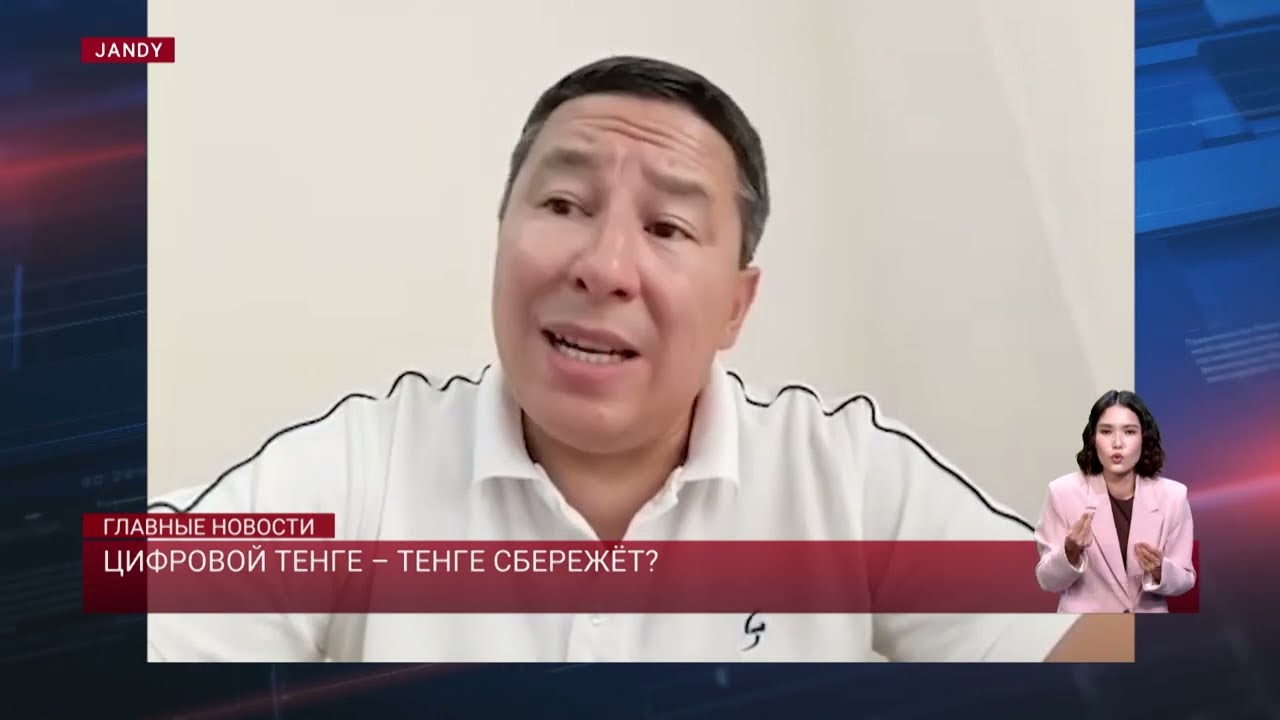The exchange rate of the Kazakh currency is staggering under the pressure of the budget, vacations and emotions. The National Bank intervenes pointwise, but the market is already living up to expectations of a dollar appreciation.
The situation with the dollar exchange rate in Kazakhstan has been developing volatile since mid-July.
On July 15, Prime Minister Olzhas Bektenov said that according to the baseline scenario that the government is considering, the dollar exchange rate will be at 540 tenge, assuring that Kazakhstan does not expect a sharp weakening of the national currency. And although from July 10 to July 16, the tenge strengthened from 519 to 529 tenge, on July 17 it rose to 532.74 tenge, having increased by 6.05 tenge per day.
The infographic is generated using ChatGPT
According to the economist Armana Beisembayeva, for market participants, Bektenov's statement was a signal: the government is counting on just such a course and it can become a new benchmark.
"Given the high sensitivity of the market, an official of this level simply has no right to make such careless statements. Yes, later the financial regulator tried to soften the perception of these words. But we remember how last year such statements already caused a stir: then, too, it was said "today – 500, tomorrow – 600." Such phrases form expectations and trigger a wave of speculation," the economist said.
On July 21, the dollar exchange rate in the country dropped to 529.44 tenge, which Arman Beisembayev called not a reversal, but only a rollback of the upward trend. Against the background of the pullback, the expert got the impression of an attempt to stabilize at the current level, rather than a cardinal reversal.
"There is a high probability that this is the result of the intervention of the National Bank, which is trying to smooth out sharp fluctuations in the exchange rate and prevent a sharp increase. This was especially noticeable last Thursday and Friday, after the exchange rate jumped sharply by 6 tenge. This is a tangible movement for the market," the expert noted.
The expert clarified that, according to his observations, not only supply and demand operated in the foreign exchange market. It could be either the actions of the regulator or the intervention of a large exporter who dropped foreign exchange earnings. Therefore, he assumes that the National Bank conducted targeted interventions, although this is not visible at the moment, and official explanations usually appear later.
At the moment, according to the analyst, a self-sustaining cycle is developing. The demand for foreign currency is fueled by the holiday season, the execution of government programs, and purchases of infrastructure projects. Importers convert their earnings into foreign currency in order to purchase goods, and the population, observing the growth of the exchange rate, also begins to buy dollars in order not to be late. All this increases the pressure on the tenge.
"Thus, by autumn, the exchange rate is likely to remain in the current range or rise higher. A short–term correction is possible - the tenge may strengthen by 5-6 points. But in the long term, we may well see the dollar exchange rate at 540 tenge and higher," Arman Beisembayev predicted.
The official dollar exchange rate, as of July 24, amounted to 538.64 tenge, according to the National Bank.
Should I invest in the dollar, or is the moment lost?
It's too late to buy a currency on takeoff. The moment has already passed for short-term speculation.
"Now is the best time for those who have already bought dollars at the spring 480-490 tenge: you can make a profit. Those who entered at 530 can only wait and hope for further growth. There is a risk of being stuck at this level for a long time. However, if you plan to hold the currency for two or three years, then there is not much difference, the exchange rate will almost certainly be higher than the current one. The only exception is if you need a currency right now, for example, to travel abroad. In this case, choosing a course is not a matter of benefit, but of necessity," he explained.
The expert suggests adhering to the universal market principle: buy on the decline, sell on the rise.
The tenge, according to the economist, is not stable due to the fact that Kazakhstan still has a deficit budget, high dependence on imports, active spending on reforms and infrastructure projects. All this creates demand for foreign currency and does not contribute to the strengthening of tenge.
"Besides, too strong a course is in itself unprofitable for the state. We sell raw materials, receive foreign exchange earnings, and pay taxes from these earnings. In this context, a higher dollar exchange rate increases budget revenues. This logic was also followed in January last year, when the tenge strengthened to 440 per dollar against the background of a tranche from the National Fund, after which, perhaps, the government asked the National Bank to weaken the exchange rate so that it would be easier to reduce the budget," the speaker said.
In his opinion, the tenge exchange rate cannot be called completely free, but it is also not fully controlled. The National Bank allows fluctuations, allowing the exchange rate to float in a certain range. Similarly, in Russia, the exchange rate of up to 80 rubles per dollar creates problems for the federal budget.
"We have similar economic structures, and the issue of exchange rate is also acute there now. The authorities would like to see the exchange rate closer to 100 rubles, because a strong currency reduces ruble budget revenues from exports. However, due to sanctions and economic distortions, it is difficult to weaken the ruble. Moreover, since 2022, the ruble has actually ceased to be freely floating and freely convertible," the expert explained.
Why does inflation seem higher than on paper
The expert explained that official inflation is an average indicator for the country and product categories. It shows the overall dynamics, but does not reflect individual expenses. Everyone has their own consumer basket: someone spends more on products, someone on services. Hence the feeling that "real inflation" is higher than stated.
"In addition, the income level is important. For those with a salary of 150,000 tenge, the price increase is perceived more acutely than for those with incomes several times higher," he said.
According to the speaker, food prices will always rise. According to the government's plans, utility tariffs will increase at least until 2029 in order to reach market levels. Today, they are still underestimated by about 2-2.5 times. The same applies to gasoline, diesel, and gas. These categories are still far from their economically reasonable levels and have growth potential, as well as fines and taxes.
"The signed Tax Code is only an intermediate stage. The state needs more revenue, and this will lead to a further increase in the fiscal burden," Arman Beisembayev believes.
Askar Kysykov, Director of the Talap Center for Applied Research, noted that high inflation, which is close to 12%, remains the main problem of the Kazakh economy today. This mark is one of the highest in recent years. For comparison, the current inflation rate in Russia is about 10%.
"Despite steady GDP growth and an increase in nominal incomes, the real monetary incomes of the population are practically not growing, their growth does not exceed 1%. The main reason is inflation, which neither the National Bank nor the government can handle yet. They will most likely take measures to prevent further price acceleration. At the same time, further tariff increases are planned from the new year, which may also increase inflationary pressure," he argues.
This situation has obvious social consequences: consumption is falling, and living standards are declining, especially among socially vulnerable segments of the population. An additional pressure factor will be the increase in VAT from the beginning of 2026. Nevertheless, in the expert's opinion, it is premature to talk about large–scale social upheavals - Kazakhstan has experienced periods of even higher inflation.
"Social policy remains the key instrument of stabilization. As prices rise, low-income families suffer the most. The work of the targeted social assistance (TSA) system is critically important here. Support mechanisms are already in place in the country: housing subsidies, compensation for utility bills. The Ministry of Labor is currently working to increase the effectiveness and targeting of these measures," Kysykov recalled, adding that given the upcoming increase in the living wage, the poverty line and the growth of social spending, the negative consequences can be mitigated and serious social tension avoided.
R-Finance financial advisor Arman Baiganov recalled that since the beginning of July, the US dollar index (DXY) has increased by 2%, which indicates the overall strengthening of the US currency against major world currencies. And this puts additional pressure on the tenge.
"The growth of Kazakhstan's public debt remains a negative internal factor. Its maintenance is becoming more expensive against the background of budget deficits, and additional tax revenues will begin to arrive only from the new year. This means that there is no reason to expect the tenge to strengthen in the coming months," he said.
The impact of sanctions against Russia, which indirectly affect Kazakhstan, should also be taken into account. In addition, domestic inflation in the republic is higher than in the United States, which makes the tenge less stable.
"The decrease in oil prices is also adding pressure. In recent months, the cost of a barrel of oil has dropped to $70 and below, whereas last year it was closer to $80. The ongoing US sanctions war is also having an impact," he recalled.
What to invest in?
Some may think that the dollar has the potential to weaken, and prefer tenge deposits, for which banks actually offer higher rates. If you are interested in other investment tools, you can invest in corporate bonds, which have yields of up to 20-22%.
Real estate remains a less risky but less liquid instrument, it does not always sell quickly, especially if money is needed urgently. The housing market is mainly active among those who know it well.
At the same time, the expert does not consider gold to be the most profitable investment due to the large spread (the difference between the purchase price at which he buys and the sale price at which he can sell). Arman Bayganov noted that a good alternative is to invest in oneself: knowledge, education, and professional development. For larger investments (from 5-10 thousand dollars), securities are suitable. It is worth investing in foreign securities through trusted financial agents.
The main thing, the expert emphasizes, is to learn how to manage your income wisely: live within your means, save and save.
Author: Гульмира Кунапия
Source: https://informburo.kz/stati/pokupat-valiutu-nuzno-na-padenii-prodavat-na-roste-eksperty-o-kurse-tenge-nalogax-i-infliacii


